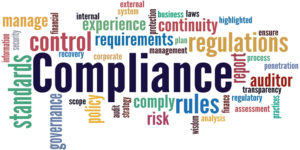As of October 2021, work is underway on a draft law on the protection of whistleblowers (the so-called "whistleblower law"), which implements EU legislation - Directive 2019/1937 of the European Parliament and of the Council (EU) ("Directive"). As a general rule, all entrepreneurs with more than 50 employees will be required to establish a fraud reporting system (the so-called. whistleblowing). Other rules are provided for specific industries, regardless of the number of employees. Small factoring companies with fewer than 50 employees may also be affected by the new regulations.
Article 23(1) of the Law on Whistleblowers implies a threshold of 50 employees from which a whistleblower system must be implemented. An exception is made by paragraph 2 of this article:
"Threshold, referred to in paragraph 1, does not apply to the legal entity performing the activity of financial services, products and markets, and anti-money laundering and countering the financing of terrorism, Transportation safety and environmental protection, covered by the European Union acts listed in Part I.B and II of the Annex to Directive 2019/1937".
The provision is written very vaguely and actually contains a long string of references:
- Part I.B. of the Directive clarifies the concept of, among other things, "financial services and markets" by referring to a number of acts, including. among others, Regulation (EU) No. 575/2013 of the European Parliament and of the Council.
- This regulation introduces the definition of a "financial institution" as an enterprise whose principal activity is the performance of activities covered by points 2-12 and 15 of Annex I to Directive 2013/36/EU.
- In turn, point 2 of Annex I to Directive 2013/26/EU lists the following as activities subject to mutual recognition: granting of credit, including, but not limited to, consumer credit, credit agreements relating to real estate, factoring with or without recourse, financing commercial transactions (including forfeiting).
According to the current wording of the proposed regulations, factoring companies are subject to the obligation to implement an internal whistleblowing system, regardless of whether they employ fewer or more than 50 people. One can't help but get the impression that small factoring companies "fell" under the regulation somewhat haphazardly through an unfortunate and extensive sequence of references. The content of Article 23(2) has not changed for many months. At the consultation stage, the Government Legislation Center proposed making the provision more specific, but this passed without an echo.
The bill is under urgent consideration and is currently awaiting adoption by the Council of Ministers and transmission to the Parliament. There is little time to implement the whistleblowing system - entities with at least 50 employees and industries covered by Article 23(2) (including small factories) have only 14 days from the date of the law's promulgation (as is clear from the current Article 62 of the draft). Theoretically, therefore, each of these companies should already be working on a whistleblowing system due to the short deadline for compliance.






